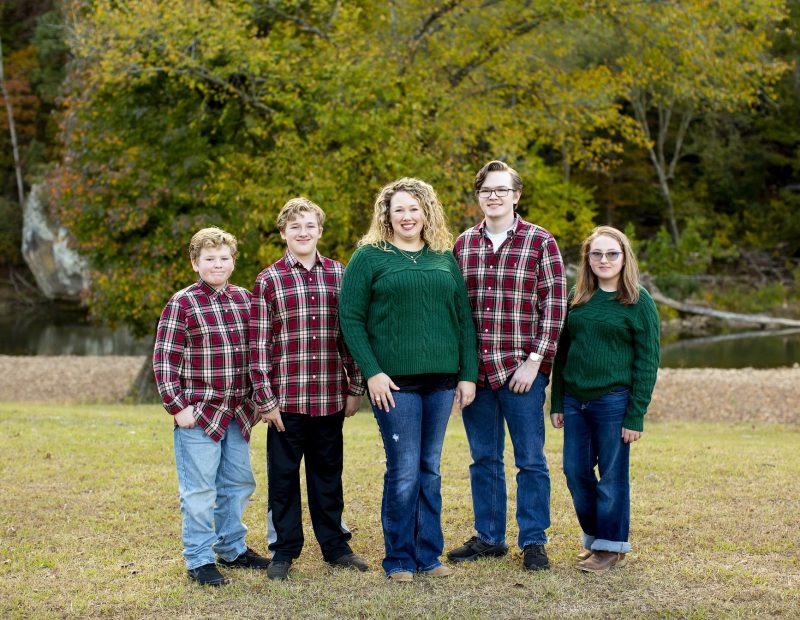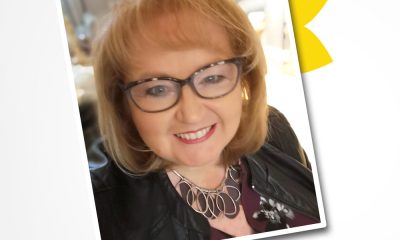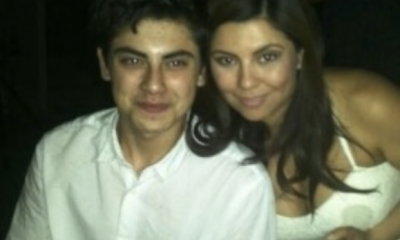By Emily Jones
How does anyone do this alone? Survive this? Will I ever feel joy again without it being overshadowed by sadness?
People don’t become a widow at 37… I’m going to feel so alone. Or so I thought.
These things plagued me for several months in grief.
Losing my husband of nearly 20 years unexpectedly was tough. Tougher still while I traveled nearly full-time for work, supported four kiddos, and leaned heavily on my in-laws. It felt impossible.
Managing 37 acres of woods and pasture, cleaning fallen limbs, mowing fields on a zero-turn I’d never used before… tasks that should be easy felt so overwhelming. I remember breaking down in my driveway one Saturday when the mower wouldn’t keep running. It was the only time that week I’d be able to get it done, and it felt so cruel just having to sit there unable to do any of it.
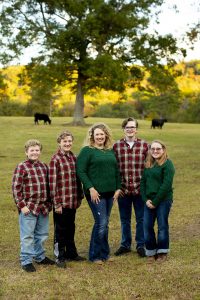 I knew early on in my grief journey that some way, somehow, I wanted to give back. This horrible, raw pain and overwhelming new life shouldn’t be experienced alone. I felt an urge to help others. And yet… I could barely help myself. But I knew my pain couldn’t be wasted. I had to turn my pain into preventing other widows from feeling so helpless and alone.
I knew early on in my grief journey that some way, somehow, I wanted to give back. This horrible, raw pain and overwhelming new life shouldn’t be experienced alone. I felt an urge to help others. And yet… I could barely help myself. But I knew my pain couldn’t be wasted. I had to turn my pain into preventing other widows from feeling so helpless and alone.
How often do you change air filters in your home? Does the lawn mower need an oil change? How do I operate the gas grill outside? YouTube was a helpful place to start, but thanks to my brain fog it was hard to focus and pay attention. The best I could hope for was a printed guide with pictures.
Looking back now it seems simple, but at the time it was climbing a new mountain every day.
I knew I wanted to create a resource that would make things much more simple. Sure, there’s a lot of information about what to do as a widow online, but it all seemed so disparate, chunky, and conflicting.
Do I need a lawyer? Should I call Social Security? What happens to my house and cars now?
I quickly joined many Facebook groups and ordered as many books as I could. I wanted to figure out all this grieving stuff so I could hurry up and get “over it.” That was my mindset anyway. I spent hours studying and reading, consuming what everyone had to say, what to expect, why our brains have such a hard time reconciling the fact that our loved one is gone, and more.
The responses at times seemed dismal, especially when people would say you never get over grief. What? I’m supposed to suffer with despair in my stomach for the rest of my life? I didn’t want to live that way. I couldn’t. I knew then how people could die of broken heart syndrome. I vowed to heal myself, to support my children, and to do for others what I wish I had found for myself.
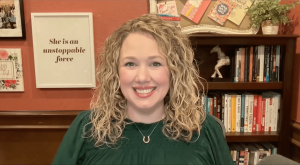 I found that telling my story was healing in itself. I started a podcast and some online social media channels for inspiration for others. For a hardcore introvert who doesn’t care for attention, this was really out of the box for me. Many times I’d pause my recording, cry my eyes out, wipe them with tissue, and start again. I was so nervous and afraid of what everyone else would say. The video and audio quality weren’t great, and I didn’t know exactly what I was doing.
I found that telling my story was healing in itself. I started a podcast and some online social media channels for inspiration for others. For a hardcore introvert who doesn’t care for attention, this was really out of the box for me. Many times I’d pause my recording, cry my eyes out, wipe them with tissue, and start again. I was so nervous and afraid of what everyone else would say. The video and audio quality weren’t great, and I didn’t know exactly what I was doing.
Would people make fun of me?
But this wasn’t for me. This was for someone I might not ever meet. For a young widow trying to juggle it all who felt alone who wondered if they were enough, who didn’t understand why grief is so darn hard. This was for them, and I would just. Keep. Going.
Nearly a year later, I’ve recorded nearly 80 episodes of that podcast, 50-plus released to date. And now I feature others’ stories. Other widows who have had their own unique stories and challenges. And they love to tell it. Even when we both get teary-eyed, laugh or have somber moments. It feels almost therapeutic, telling your story. Knowing that someone out there somewhere might hear it and resonate so deeply with your message and words of encouragement.
I now run an online membership community for widows where we educate, empower, encourage, and walk this journey together. Because no one should walk it alone.
It’s my favorite thing to do, serving my community, finding needs or gaps in service and providing them, educating family members and friends who want to help widows but don’t know how… all of it. Feeling like I’m making even a small difference is one of the best feelings in the world.
A few weeks ago, I did an exercise with my group on writing a poem about grief. We took ten minutes or so then shared it with each other. The people on the call were all about two years out from their loss. It was incredible how similar our poems were. Not in the words, but in the analogies.
In the beginning, grief was like a tsunami, an overwhelming force that comes in waves, knocking you back. It’s overwhelming, and you feel so powerless against it. These days, grief is an acquaintance. Someone we’ve become familiar with and acknowledge, but who no longer impacts us with volatility and the mighty strikes of defeat. It’s not too far away, but it doesn’t hold the power it once did.
Where sadness used to cloud my joy, rushing in like an ocean’s wave, now the wave is full of gratitude. I am grateful for the love I shared and the time I got to spend with my best friend.
For more information about Emily, you can check out her website.
Support us by driving awareness!
Subscribe to our YouTube channel at YouTube.com/GrapGrief.
Follow us on Facebook at Facebook.com/GrapGrief and on Instagram at Instagram.com/GrapGrief.




